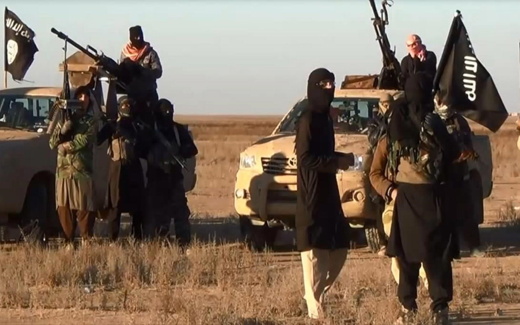An August 24, 2014 issue of Arman-e Emrooz Newspaper featured a column by Jafar Golabi on those who share the blame for the rise to notoriety of the Islamic State, formerly known as the Islamic State of Iraq and Syria (ISIS). The following is the translation of the op-ed in its entirety:
The emergence of ISIS in Iraq is not a simple question to be overlooked. In fact, it has roots in multiple historical events, and therefore we cannot be totally immune to its direct or indirect consequences or to similar phenomena. After the emergence of ISIS in Iraq, when US President Barack Obama officially declared that America would not intervene militarily, he could never imagine that if the “cancer” of ISIS triggered bloodshed in Iraq, it would inflict suffering on Americans and put US interests in the region on the line.
An analysis of the issue and a detailed study into what gave rise to ISIS in Syria and Iraq calls for scientific dissection in the field as well as consideration of all regional and international factors at play. Nevertheless a cursory examination of how the West dealt with the issue can be food for thought for Iran.
After the outbreak of civil war in Syria, initially the West directly and indirectly supplied Syrian rebels, among them fundamentalists, with arms. However, when it saw their actions in rebel-held areas which posed a potential threat to the West as well as to Israel, it made extra efforts to make sure the aid was solely channeled to the Free Syrian Army.
When the demon of ISIS suffered overwhelming defeat in confrontation with the Syrian army in Syria, it took shelter in Iraq and drew international attention to its savage and inhumane measures. Apparently, such moves which defy political logic put Saudi Arabia and Qatar, which initially supported ISIS, in a dilemma and are likely to lead to international consensus on taking on the group.
The question that matters most is what set the stage for such groups to surface in the Middle East. Undoubtedly, these groups live on economic woes, discrimination, ignorance, superstition, and dogmatism. Such social ills help rebels recruit an army of disgruntled youth who are at their wits’ end.
However, if political conditions do not contribute to the emergence of such extremist groups, if governments stop taking sides and backing such groups, and if the interests of dominant powers do not play a role, the energy driving such violence – either orchestrated or haphazard – will find a vent in the form of sporadic incidents. Rare shooting incidents in which civilians are targeted in the West are examples of such eruption.
As long as Western interests lie in the establishment and the rise to power of the Taliban in a showdown with the Union of the Soviet Socialist Republics (USSR) at some time, and in providing Syrian rebels with arms and in capitalizing on and even inflating the ignorance and menacing religious divisions gripping the region at another, it won’t be a difficult task to locate the likes of Abu Bakr al-Baghdadi – the head of ISIS – and supply them with financial aid and weaponry.
In addition to this global chronic, nagging and agonizing pain, a phenomenon is in the making in which fomenting terrorism and provoking divisions and ignorance act like a double-edged sword which will come back to haunt those behind the scenes even more rapidly than the Taliban. Who would have thought that ISIS would ever surface in Iraq and brutally behead American journalist James Foley?
Probably, by now the West has come to the conclusion that it is not always possible to maintain stability, equilibrium, and welfare at home and send away crises to this part of the world.
In the aftermath of 9/11, former Iranian President Mohammad Khatami in his address to the United Nations pointed out that in order to avert such disasters, measures should be taken to stop people from getting so world-weary that they might want to claim numerous lives by killing themselves.
As a matter of fact, there should not be a deepening gap between the North and South, and as long as such widening and threatening chasm persists, there is always the danger of an eruption of spite and hostility.
Only if America gives up its presence in the Middle East and leaves, will it be able to escape such conflicts unscathed. Even if it is not planning to do so, it should not pursue its interests in stoking divisions and discord or keeping forces engaged. Taking advantage of Third-World indiscretions could one day bear inconceivable consequences.
